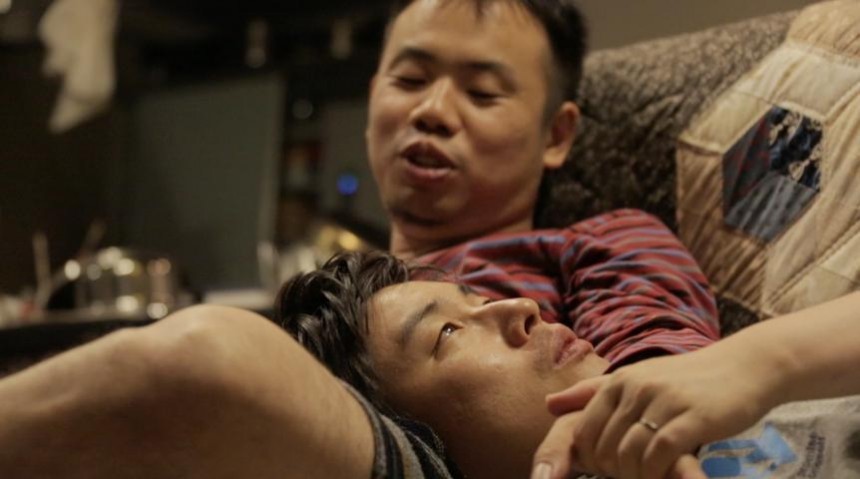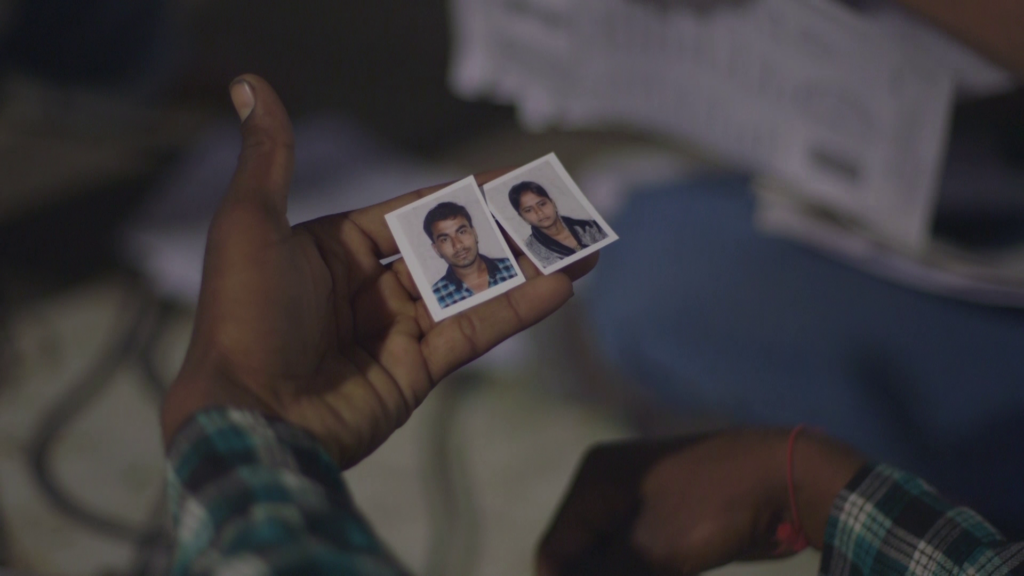These aren’t quite romcoms, but thoughtful and sensitive explorations of the diversity of love and kinship in different cultures across the world, and the forces that frustrate its pursuit. Festival Reporter Sophie Haxworth picks three to see.
of love and law

Whats love got to do with it?
“When I think of family, it’s you.”
Kazu and Fumi are partners at their law firm, but also in life. (They are only “married” in inverted commas, as same-sex marriage is not yet permitted in Japan). Their status as an openly gay couple attracts a range of attention that affects their work and personal life. On one hand, as a minority themselves, they draw out the silenced minorities hiding just beneath the surface of quiet compliance to tradition in Japanese society. But on the other, they feel alienated from society. Their love is not recognised as legitimate. They daydream of expanding their family, but their wistful tone indicates this will remain a dream in today’s Japan.
The film is divided into chapters built around a series of legal cases taken on by Kazu and Fumi. These include a feminist artist fighting charges of obscenity (for using vaginal imagery), and a schoolteacher fighting her dismissal for refusing to stand during the national anthem. In another case, we learn that children born outside of traditional family structures in Japan simply do not exist in the eyes of the law. This case in particular reflects back on Kazu and Fumi’s own desire for their love and their family to be recognised.
Whilst legal cases about civil liberties structure the film, it is film is really a love story. With incredibly intimate access to the daily life of Kazu and Fumi, we feel their dedication to each other, and how cultural norms and archaic laws impact upon the emotional lives and dreams of a nation’s citizens.
Of Love and Law screens on Saturday 30th March at 08:50 at Watershed. Buy your tickets for this screening here.
Or why not buy a Saturday Day Pass and continue your journey?
Heartbound

What’s love got to do with it?
“Love is a strange thing. It hits you when you least expect it.”
Heartbound examines the marriages that have brought over 900 Thai women halfway across the world to a windswept town in Denmark. Over ten years, it follows four couples, and profiles Sommai – the ex sex worker who pioneered this network of Thai-Danish marriages (which allow women not only to build new lives, but to support their families back home).
In this messy and morally ambiguous world, visual anthropologists Metz and Plambech (who are married themselves) expose a human yearning for love that crosses an economic, cultural and geographical divide. Amongst shots of the two countries’ contrasting landscapes, the film asks what love means for partners with drastically different backgrounds, presented with a frank yet never judgemental style. The film places the women’s multifaceted experience at its forefront, compassionately painting their humour, their hopes, and their dignity in a world that has offered them very little.
This film will break your heart and encourage you examine its pieces before carefully, true to its title, binding them together again into something at once more fragile and more knowing.
Heartbound is the recipient of the Richard Werbner Award for Visual Ethnography 2019. Director Sine Plambech will attend the screening for a discussion chaired by anthropologist Gabriel Dattreyan, who judged the Award this year.
Heartbound screens at 15:40 on Thursday 28 March at Watershed.
Buy your tickets for this screening here.
Or why not buy a Thursday Day Pass and spend a day exploring the world’s best ethnographic film?
Welcome Valentine 2017

What’s love got to do with it?
“Everyone should experience love. The world will be dry and lifeless without it.”
In the conservative landscape of contemporary India, one Hindu priest insists that love must win out. Hirabhai Juguji, a priest with a remarkably temperate and transparent outlook on life, runs the only Hanuman Temple that performs marriages. He is known for marrying couples rejected by other parts of society, be they same-sex, transgender, or eloping due to family disagreements.
The film paints an understated portrait of the necessity of love, staged alongside the ordinary and seemingly mundane tasks of Juguji’s day-to-day life. We hear him speak of couples completing each other as we watch him laying tiles outside the temple; these words and actions complement each other, demonstrating how marriage between partners in love can be as straightforward as these honest tasks. He lays the groundwork of the religious site just as his marriages aim to lay the groundwork for couples’ happy lives. Welcome Valentine 2017 voices Juguji’s conviction that love has the power to strip back the complexities of tradition, politics, family and duty.
Welcome Valentine 2017 screens on Thursday 28 March at 15:30. It is part of Student Programme 4, which showcases the outstanding work being made by today’s emerging visual anthropologists.
Buy your tickets to this screening here.